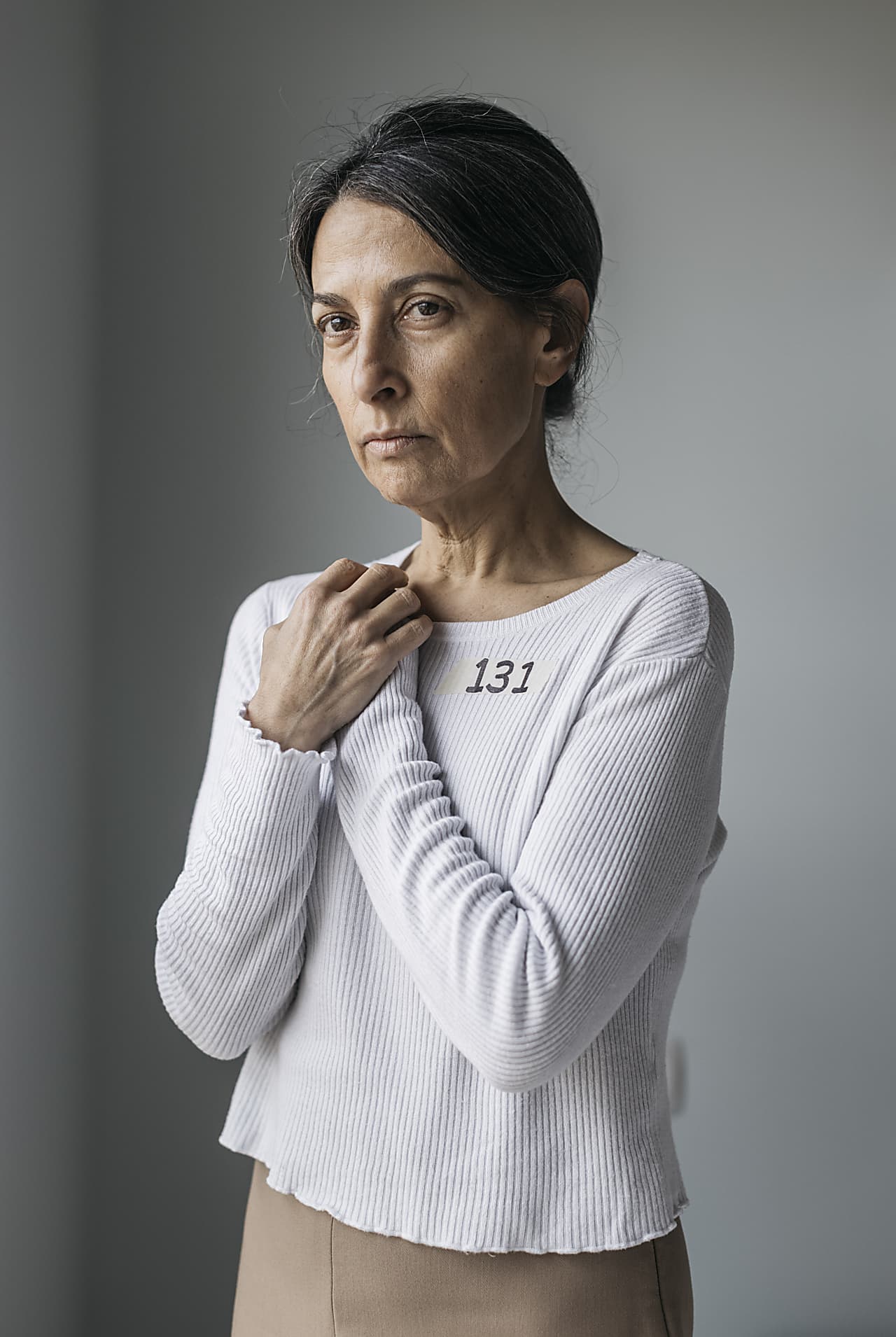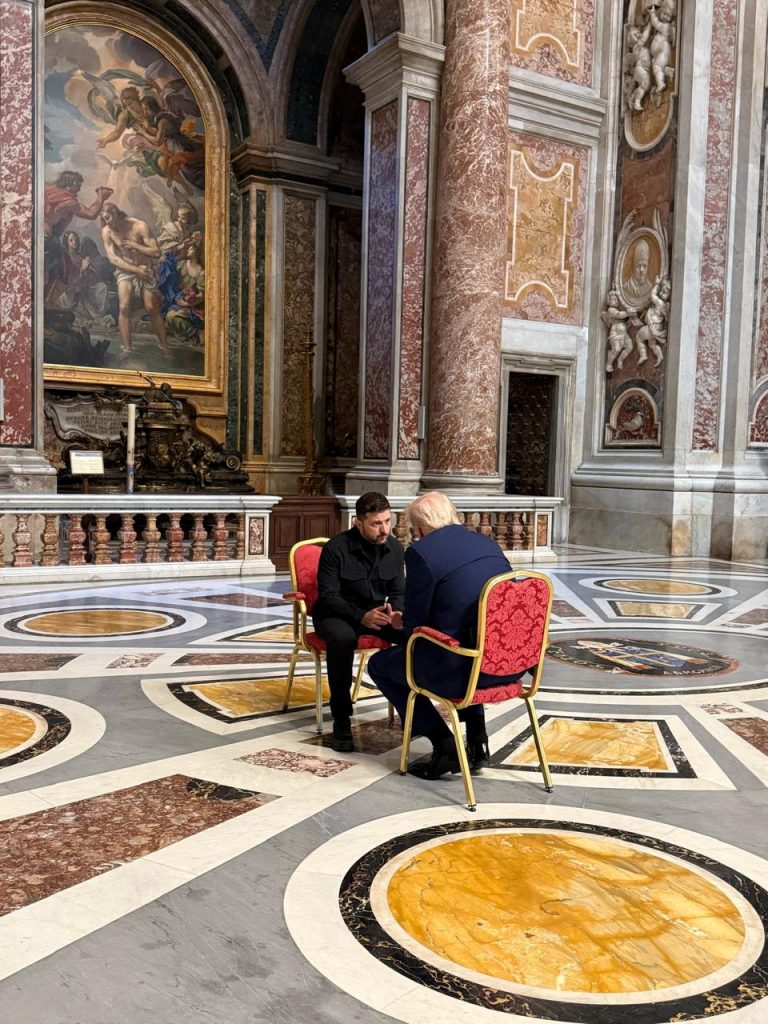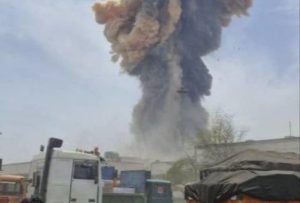Rachel Goldberg-Polin believed so strongly that her son Hersh would come home from being held hostage by Hamas in Gaza that she once told me she imagined herself dancing at his wedding and holding his future baby in her arms.
This belief—that her son was alive and that she could bring him home to her if only she tried hard enough—sustained her for almost 11 months.
It kept her standing when she watched a video of her son with his arm blown off by a grenade being loaded onto a truck and taken to Gaza by terrorists during the Oct. 7 attack on the Tribe of Nova music festival. And when she received no word of him for more than six months. And in April when she watched her son in a hostage video released by Hamas looking pale and agitated and pleading with his family to stay strong and continue fighting until he and the other hostages in Gaza could come home. And just days ago, when she stood on the Israeli side of the Gaza border and recited a traditional Jewish blessing into a loudspeaker, hoping her son could hear her.
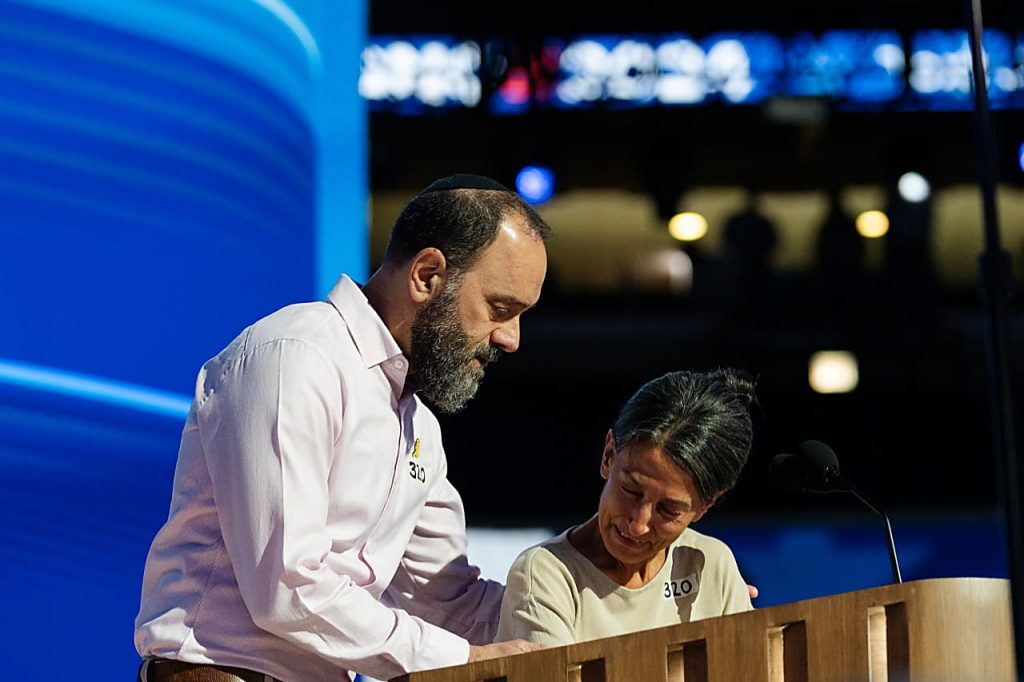
Jon Polin and Rachel Goldberg-Polin spoke at the Democratic National Convention in Chicago on Aug. 21. Photo: Sophie Park for The Wall Street Journal
“It’s Mama,” Rachel started. “We are all here, all the families of the remaining 107 hostages. Hersh, we are working day and night, and we will never stop.”
For months, Rachel has written the number of the days since her son was stolen from her on a piece of masking tape each morning and stuck it on her shirt over her heart. She stood at the Gaza border on Day 328. On Day 330, the Israeli military said it had recovered the bodies of six hostages from a tunnel beneath the Gaza city of Rafah. Hersh Goldberg-Polin, who was 23 when taken, was one of them . They had been shot at close range just 48 to 72 hours before they were found .
An American Israeli, Hersh may be the most globally recognizable of the hostages taken on Oct. 7 thanks to the unflagging efforts of Rachel and her husband, Jon Polin , Hersh’s dad.
Rachel, 54, was a teacher and mom when she woke up on Oct. 7, the kind who baked chocolate-chip cookies from scratch then warmed them up individually when her three children returned from school at different times.
Starting that afternoon, on Day 1, she entered a new world as advocate for her son and the other hostages. She met with world leaders and executives, addressed the United Nations, visited the pope at the Vatican, and in August spoke at the Democratic National Convention. The videos she posted regularly on Instagram were viewed by tens of thousands.
“We will run to the ends of the Earth and talk to anyone,” Rachel once told me. “We don’t know what the stone is that needs to be unturned.”
I spent three days with Rachel in Israel in February and spoke with her again in April after Hamas released the hostage video of her son. I saw how tirelessly she and her husband worked to save Hersh, putting in 18 to 20 hours a day in the belief that every minute counted.
On just one of the days I was with Rachel, she began her morning with the prayer she said every day for her son: “I love you. Stay strong. Survive.” Then she met with several members of the Israeli parliament, other journalists and a group of Orthodox Jews visiting from her hometown of Chicago.
Yet when she sat down with me to talk late in the evening, she still seemed laser-focused on our conversation. “Let’s do this,” she said. We talked until almost 2 a.m.
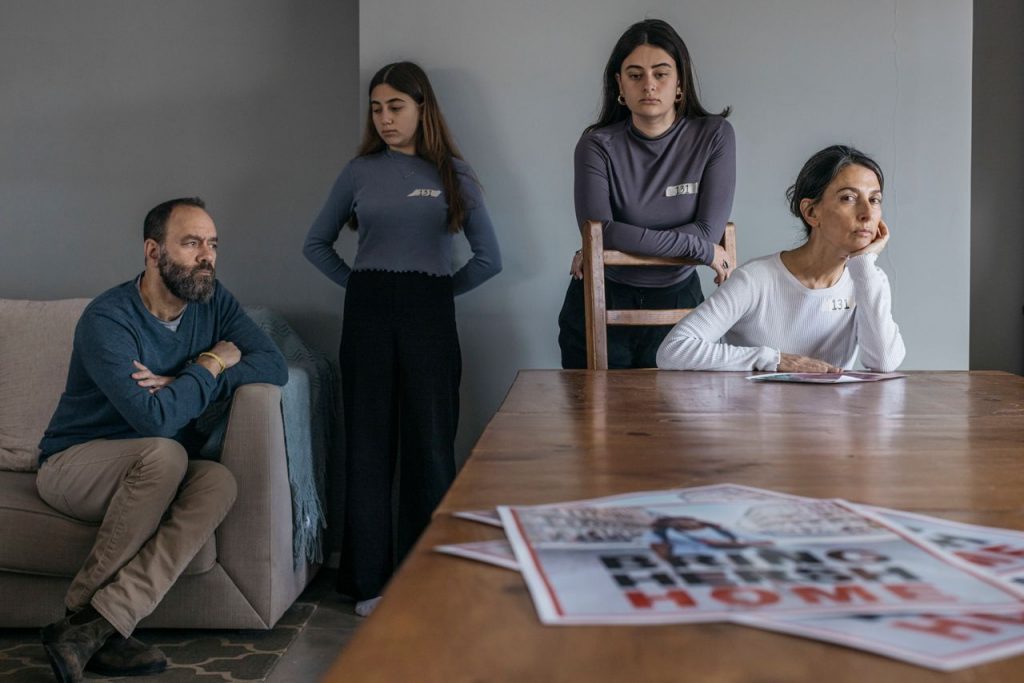
Hersh Goldberg-Polin’s family, from left: his father, Jonathan Polin, sisters Orly and Leebie, and his mother, Rachel Goldberg-Polin, in their house in Jerusalem. PHOTO: AVISHAG SHAAR-YASHUV FOR THE WALL STREET JOURNAL
When I was with Rachel, it became easy to believe that Hersh was coming home, that he somehow survived that day in October when so many others died, survived being paraded in the back of a pickup truck through Gaza when at least one other abductee with him didn’t, survived his severe injuries, survived the Israeli bombings and whatever awful hardships he might be enduring.
“Hope is mandatory,” Rachel repeated as a mantra. There was no other option.
Rachel is one of the most formidable, articulate and inspiring people I have ever interviewed in my years at The Wall Street Journal. Even though—or maybe because—she was so desperate to save her own son, she often spoke of her concern and heartbreak over the innocent Gaza civilians who were also suffering terribly.
Shortly after I met Rachel, she told me that every day since Day 1—Oct. 7—she has had to force herself to act human. Her eyes met mine, and I could see the effort. She is warm and caring in person. But she wasn’t fully living.
I felt scared for her when in one of our interviews she listed all the things that she no longer allowed herself to do after her son was kidnapped.
She didn’t wear makeup or let her hair down or do crossword puzzles, because she used to do them with Hersh. She didn’t socialize or listen to music. And she stopped allowing herself to enjoy food, eating just one meal a day, which she consumed quickly without looking at it, because she feared her son wasn’t being fed properly.
Rachel told me she hoped to have the privilege of having all three of her children bury her someday. It breaks my heart to know that instead she will be burying her son today, on Day 332.
I pray for comfort for her and her family. That Hersh’s memory will be a blessing, a traditional Jewish expression. And that she will stay strong and survive.
It is too early to know whether or how Hersh’s death might change the situation in the Middle East. May it be for the better.
Write to Elizabeth Bernstein at Elizabeth.Bernstein@wsj.com
